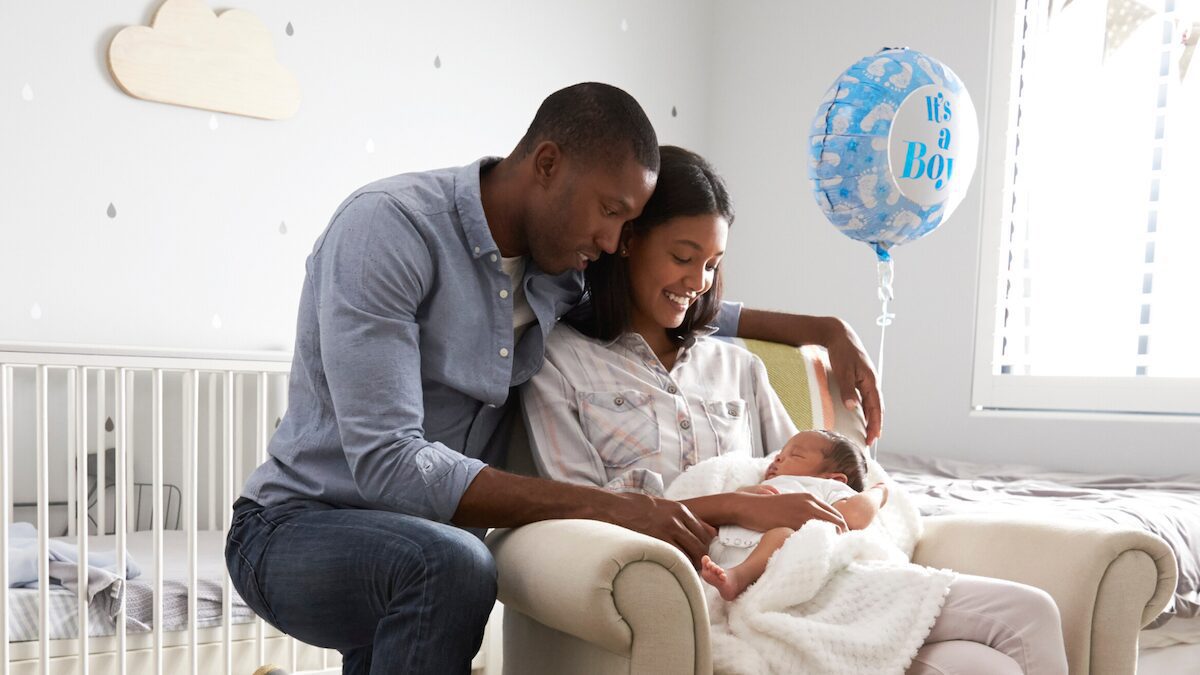Sleep training can be a tricky subject for parents. From when to start, to how to start… hopefully this guide will help!
Sleep forms such an essential part of mental well-being. Good sleep helps us regulate our emotions, allows for more empathy and critical thinking. Or what is otherwise known as executive functioning. Conversely, poor sleep affects our emotions, our thoughts and our actions. We’ve all had situations where a good nights sleep would have helped avoid unnecessary situations.
Over the years working as a couples psychotherapist, I’ve worked with sleep trainers and various therapists to help support couples in this part of their journey. Now I’m going to share some of the things I’ve learnt in this blog.
Sleep Training, there is no right or wrong way, there’s just your way!
Every person is unique. Every family is unique, and certainly every child is unique. There is no one right way to sleep train your child; you need to find the right way to work for you and your child. Often when parents struggle, they look for external help. Consequently, problems can arise when they come across conflicting advice and information that tells them they should be doing things a certain way.
Parents can often be confused by the amount of advice out there. Be it from friends, family, speaking to experts or simply spending too much time on google. Add in a healthy dose of sleep deprivation, and this can certainly make the problem worse. Especially if you are struggling and the pressure to find the one’ right’ way is compounded.
I’ve found that the most important thing is finding a program that fits into your lifestyle. One that you feel you will be able to manage and align with your parenting styles. If you take one thing away from this blog, it’s this:
- There is no objectively right or wrong way to sleep train your child!
Communication and Allowing Emotions to be Present is Paramount!
If you are parenting with another person working out a plan can be a thorny subject. We can all carry unconscious maps of how to parent. And this will be carried with us from our own families and childhoods. For some couples, there might be a substantial difference of opinion; for some couples, one parent might have stronger feelings than the other. The best thing you can do is to work together as a team.
This is an opportunity to support one another and find a plan that works for both of you. Keep communicating. If one parent is happy to go with the other’s ideas, support your partner by being there for them. By listening and helping them map out the routine.
Supporting your Partner when Sleep Training:
What are the best thing you can do to support each other should emotions arise?
- Let them know that you are there for them.
- Help them feel safe to express their emotions, fears, anxiety, anger, doubt or whatever else may show up.

Human beings, are implicitly taught the best thing when someone you love is in crisis is to solve their problem. Unfortunately, how this is often received by the other person is it’s someone else telling them what to do. So, if your partner needs to cry, give them a hug, tell them they are ok and are doing fine. Let them know you are there for them. If you have decided to work together on sleep training be there for each other. See it as a relay race where you can both support one another. Tears of frustration can be present in both parents and the support you can offer can be a two-way street.
Support While Solo Parenting
If you are solo parenting it can be beneficial to find one person you bounce ideas off. Hearing other people’s thoughts can help you make your own decisions. Even if your views are the exact opposite it can help you feel more secure and make a plan. Plus having someone to let off some emotional steam to can be a lifesaver.
If you don’t have a support network at your disposal, be your own! Giving yourself room to listen to your own emotions and to let them out will also do the job. Trust me, you’ve got this!
What Works Best for Any Child is Consistency and Comfort
As human beings, we learn by creating habits, and through routine, this is doubly true for our children. Trust in the plan you’ve come up with. Trust in the process, trust in yourself and recognise that your child is learning something new. While transitioning from whatever situation you are in, your child is going to experience some level of confusion. This will continue as they adjust and learn the new routine. When our children are confused, they look to the parents for guidance. To know that the change that they are experiencing is safe or not.
This is why having both parents on the same page is so essential. Children may not like change at first. If they can spot inconsistency in parenting styles, they will intuitively play parents off against one another. The best thing you can do is present a united front based by creating clear and consistent boundaries.
The other thing that can put a spanner in the works of any plan is stress. Our babies and toddlers respond primarily to our own emotions. A stressed parent, feeling like they aren’t doing it right, will make any plan that much harder. No matter how good the plan is it will send a message that this new routine isn’t safe. Our children are primed to respond to things like our tone of voice, our breathing and our heart rate. They recognise the amount of stress that we are experiencing in our bodies.
Make sure you look after yourself too
Whatever you do during the night, make sure you tend to your own state first! Our bodies are hard-wired to create what’s called the ‘startle response when woken up from sleep; this increases our heart rate, floods our system with adrenaline and cortisol and creates a stress response. And if we’re woken by our baby crying, it can make it even worse;
Hearing our baby cry we can feel the need to rush in straight away. Take a minute to breathe, relax, and get into the right state. Be calm and ready to tend to the crying baby that you are going to comfort. Depending on what plan you’ve chosen, you may be up for some time in the night. Especially in the early stages of creating a new routine. So make sure that you are looking after your needs first. Obvious things like have a stretch, going to the loo, whatever you need for your own comfort.
There’s an adage in therapy that says you need to put ‘your own oxygen mask on first’; you can’t care for anyone else unless you also care for yourself. The extra time taken to be as relaxed as possible will reap benefits when trying to settle your child.
Plan Ahead and Stay Calm:
In relation to looking after ourselves it’s the little things that make a difference. So, plan ahead and think about small things like having a bottle of water or a snack stashed near you. Anything that can increase your comfort.
Remember, that our babies will be tuning into our breathing and our heart rate; the startle response will also be happening for them. If your baby is in distress, you can help comfort them by providing a guide for for their breathing. Try finding a deep breathing tool. Your baby is using your nervous system to help them regulate their own physiology. Just to be clear, I’m not suggesting that this is going to be a magic answer. Still, you can certainly support your baby in calming down by staying calm yourself
If relaxed deep breathing is something you do already in someway then use that! If not it might be something you want to look into. There are resources and videos all over the internet.
For the Sleep Training Dads, and Non-Biological Mum’s:
It’s not uncommon for Dads to find it less natural to bond with their babies. It kind of makes sense when you think about it! The chances are that you are spending less time with the child, but as men we need to change the narrative on this. There are many opportunities for fathers to get involved with their kids more from before they are even born. The primary parent way of doing things is slowly fading, and more collaborative parenting is providing a better way for our little ones to grow up.
When researching this blog, I wanted to test out a theory. I spoke to a colleague, Amanda Marks, who’s been working with parents and sleep training for 30+ years. She confirmed what I had thought. Every single dad who’s been part of their babies sleep training has felt a stronger bond with their baby! There’s something so empowering in helping your child to feel secure and to get them back to sleep. It’s also a deeply emotional experience and something that will enhance your babies feeling of attachment.
Of course, it might not be possible for you to do this. For whatever reason that is don’t worry! – You’ll find your own way to bond. However, if you can, as a dad, we can find this incredible moment of intimacy with our children.
And finally,
Work together as a couple or bounce ideas off a friend. Have a plan, stick with it. Look after yourself, and work on keeping calm during the sleep training and be kind to yourself after. Remember, you’ve got this!
Watch the relevant Dad Chats Live Episode
If you’d like to watch and listen to Jonathan talking about this subject, don’t forget you can see his guest appearance Dad Chats Live. Our weekly parenting chat hosted on Instagram.
And if you are interested in writing a guest post for us on a subject you feel qualified to talk on please do get in touch and we can explore further.
Watch now>>>
Has this post helped you?
Has this post inspired you to think about sleep training? Or maybe you’ve been through it and have some hints to share? We’d love to hear about your tips for sleep training – why not share them on our Instagram or get in touch here?
Please leave your comments in the section below and share this post and other Dadvengers Posts with your family and parenting friends.
Dadvengers is a community of parents (that’s Mums and Dad’s) focused on supporting Dads on their journey through parenthood.





















2 Comments